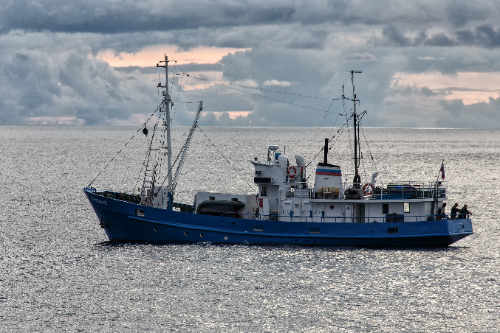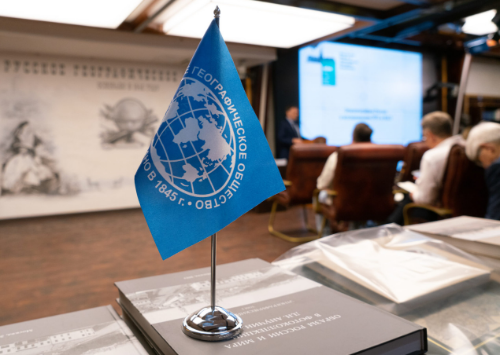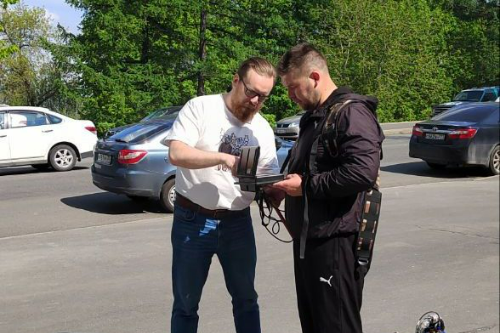– This is a way to learn how these rock species have formed: where they got fused and how they were mixed. In effect, we can model their formation in certain environments and time periods, – Director of the Institute of Geology KarRC RAS Sergey Svetov told.
In the study of sedimentary rocks, mass spectrometry helps identify the provenance of the bottom sediment and, hence, the ice sheet movement pathways. This knowledge is important for reconstructing the paleogeographic situation 7-12 Ka BP to explain how the modern topography has formed.
In applied geology, mass spectrometer is used to prepare pure mineral sample concentrations in the laboratory. E.g., high-purity quartz rarely occurs naturally but it is essential for the optical industry, for manufacturing solar batteries, etc. Scientists can provide business with a technique to get an object of wanted concentration.
Mineral geochemistry describes the characteristics of ore systems and the region’s mining potential in general.

The mass spectrometer installed in the Analytic Center of the Institute of Geology KarRC RAS is part of the Karelian Research Centre’s Core Facility. It will be used by staff of other institutes as well. To wit, mass spectrometry is a common method in studying the composition of soils and soil profiles: elemental analysis delivers information about substrate genesis.
Biologists can study the composition of macro- and micro elements in organism tissues. E.g., mussel shells store information about the environmental conditions in a certain period of time. Activities of this kind, assessing the chemical characteristics of waterbodies and their dynamics, have already been implemented in collaboration with the Institute of Limnology RAS. Mass spectrometry is used in ecological biochemistry research, including aquarium experiments studying the effect of various factors on aquatic organisms. Biochemists from the Institute of Biology KarRC RAS, e.g., have researched the effects of heavy metals on aquatic organisms. The concentrations of certain elements in water and animal tissues are among the conditions to be monitored during such experiments.
Another field of application for the device is archaeology: it permits studying the chemical composition of the ceramics or alloys artifacts are made of. Impurities can serve as evidence of the production process, place, and provenance of the material. Geochemical data can be used in attempts to identify the maker’s hand. Such studies have also been implemented at KarRC RAS.
An essential precondition for successful operation of the device is the proficiency of laboratory staff. Chemists prepare the samples – liquefy the objects to be studied by acids, and physicists perform the actual analysis with mass spectrometer.
– Our analytical center has a smoothly operating sample preparation process – acid digestion and dissolution of the material, no matter whether it is stone or perch liver. Due to this combination – competent specialists and modern equipment – our results meet global standards and are published in reputable foreign journals, – Head of the Analytical Center, Institute of Geology KarRC RAS Sergey Burdyukh remarked.

The analytical system ICP MS Agillent 7900 will replace the obsolete mass spectrometer X Series II (ThermoFisher Scientific). The new device will determine the concentrations of as many trace elements as possible (from lithium to uranium) at concentration levels starting off 100 parts per billion.
– The low detection threshold, multi-element and express analysis are the main benefits of the new device. It can determine up to 50 elements in one run. We can process 60 samples within 5 hours, – explained Arsenii Paramonov, Leading Physicist at the Analytical Center, Institute of Geology KarRC RAS.
In addition to staff of the Institute of Geology and other research units of KarRC RAS, scientists from other regions will have a chance to use the new device in their research. The Centre’s analytical staff cooperate actively with colleagues from Moscow, Komi Republic, Murmansk Region.
The new mass spectrometer was purchased as part of the instrumental upgrade program of the Russian Ministry of Science and Higher Education. According to Sergey Svetov, Analytical Center IG KarRC RAS plans to supplement it with a laser ablation system to broaden the spectrum of the tasks handled by Karelian scientists. In particular, researchers will be able to develop isotope dating methods for geological objects and to launch a new research area in geochronology. So far, this could also be done by shipping samples to laboratories in St. Petersburg or abroad.








